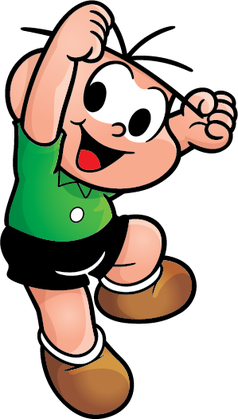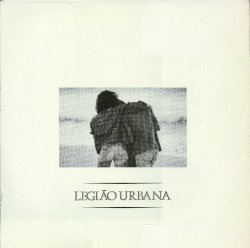History
In 1987, Editora Abril bought the rights for Spanish magazine Muy Interesante , that would be translated and published in Brazil. However, the magazine's editors found that the style of the articles was not suitable for the Brazilian public, and decided to write their own pieces, maintaining Muy Interesante's layout and style.
The magazine was first published as a small paperback with less than twenty pages (called "Edição 0"), which came bundled with other magazines printed by Editora Abril. The second edition, however, was sold separately, featuring a cover article about superconductivity. That edition was a very big success and sold out at most retailers.
Nowadays, the magazine is the most influential of its genre in Brazil. It also spawned Mundo Estranho , that started as a section of Superinteressante, but grew to be a separate magazine.

Germano Almeida is a Cape Verdean author and lawyer.

Veja is a Brazilian weekly news magazine published in São Paulo and distributed throughout the country by media conglomerate Grupo Abril. It is the leading weekly publication in the country and one of the most influential outlets of the Brazilian printed media. Veja publishes articles on politics, economics, culture, world events, entertainment, and war. It also regularly includes editorial pieces related to themes like technology, ecology, and religious debate. It has recurring sections on cinema, television, practical literature, music, and guides on diverse subjects. It has been described as politically aligned with right-wing movements, though it does not describe itself as such.

Grupo Abril is a Brazilian media conglomerate headquartered in São Paulo. The company is the holding company of Editora Abril, which publishes the weekly newsmagazine Veja.

Editora Abril is a major Brazilian publisher and printing company and one of the biggest media holdings in Latin America. The company was founded in 1950 by Victor Civita in São Paulo and is now part of Grupo Abril.
Info Exame was a high-popular Brazilian technology magazine. Its name was Exame Informática initially, a reference to its creation as the technology supplement for Exame, a business magazine. It was popular with technology non-experts because of its simple-language approach to IT-related topics. The headquarters was in Sao Paulo.

Jimmy Five, known as Cebolinha in Portuguese, is one of Monica and Friends' main characters. He was created in 1960, at first as a support character for Franklin and Blu who the following year became the protagonist of his own series of newspaper strips, which was later replaced by the character Monica in the 70s. Currently Jimmy Five has his own printed comic book, called Cebolinha, which was first released in 1973.

Chuck Billy is the main character from Chuck Billy 'n' Folks, created by Brazilian cartoonist Mauricio de Sousa. He is the biggest work of Mauricio after Monica and Friends, and he has his own cartoon magazine and even some VHS and DVD movies, following Monica's steps.
Muy Interesante is a monthly popular science magazine which deals with fun facts and current events, such as the development of nanotechnology, physics, biology, astronomy, genetics, neurosciences, new investigations and inventions, and world affairs.
Placar is a monthly Brazilian sports magazine. Its first edition was issued by Editora Abril. on March 20, 1970, and since then it has become the most successful sports publication in Brazil, even though it focuses fully on football. It is currently published by Editora Abril.
Galileu is a science magazine in Brazil, which was founded in 1991. The magazine is owned by Editora Globo. Galileu was first called "Globo Ciência". The current magazine is named after Galileo Galilei, or Galileu Galilei, in Portuguese. It is a competitor of Superinteressante, another science and technology magazine. In 1998, Globo Ciência published its 86th edition and, from then on, changed its name to Galileu. The first issue's topics centered on robots.

Chuck Billy 'n' Folks is a Brazilian comic strip and part of the Monica's Gang comic book series, created by Mauricio de Sousa.
Mundo Estranho, first issued November 2001, was a monthly diversities and fun facts magazine, very popular among Brazilian teenagers and one of the country's most popular magazine of its type. It started as a section in the more popular Superinteressante magazine, but was already a separate paperback a few months after its first issue, later converted to a full-fledged separate magazine.

Editora Globo S.A. is a Brazilian publishing house, property of Fundação Roberto Marinho. It began as a bookstore called Livraria do Globo, created in Porto Alegre, in December 1883, by Laudelino Pinheiro de Barcellos and Saturnino Alves Pinto.

Tina's Pals is a Brazilian comic strip series, part of the Monica's Gang series, created in 1970. The stories are aimed at a more teenage group of readers, rather than the kids who would read other Mauricio de Sousa's works and thus center around teenagers. However, Mauricio prefers not to mention drugs, sex, alcoholic drinks, or other similar subjects, which are very popular among teenagers. Instead, the strips are written with themes related to school or university, dating, problems with parents, etc.

"Eduardo e Mônica" is a song from Brazilian rock band Legião Urbana's 1986 album Dois, released as promo single. It tells a romantic story centered on a couple formed by the 16-year-old Eduardo and the older college student Mônica, who are very different from each other.
Exame is a fortnightly magazine specializing in economics, business, politics and technology published by Editora Abril, in São Paulo, Brazil. It reports news, reviews and tips about business, sales, investments, economics, environment, technology and marketing.
Roberto F. Civita was a Brazilian businessman and publisher. Born in Italy, he emigrated at the age of two with his family to New York in 1938 to escape effects of the Race Laws. They moved again to Brazil in 1949, where his father Victor Civita founded Editora Abril, a publishing house.

André Diniz is a Brazilian comics artist. He began working with comics in 1994 with the fanzine Grandes Enigmas da Humanidade, which had a circulation of 5,000 copies.

Maria Emilia Archer Eyrolles Baltasar Moreira, known to her readers as Maria Archer, was a writer and activist from Lisbon, Portugal.











